SUMMARY
This is AI generated summarization, which may have errors. For context, always refer to the full article.
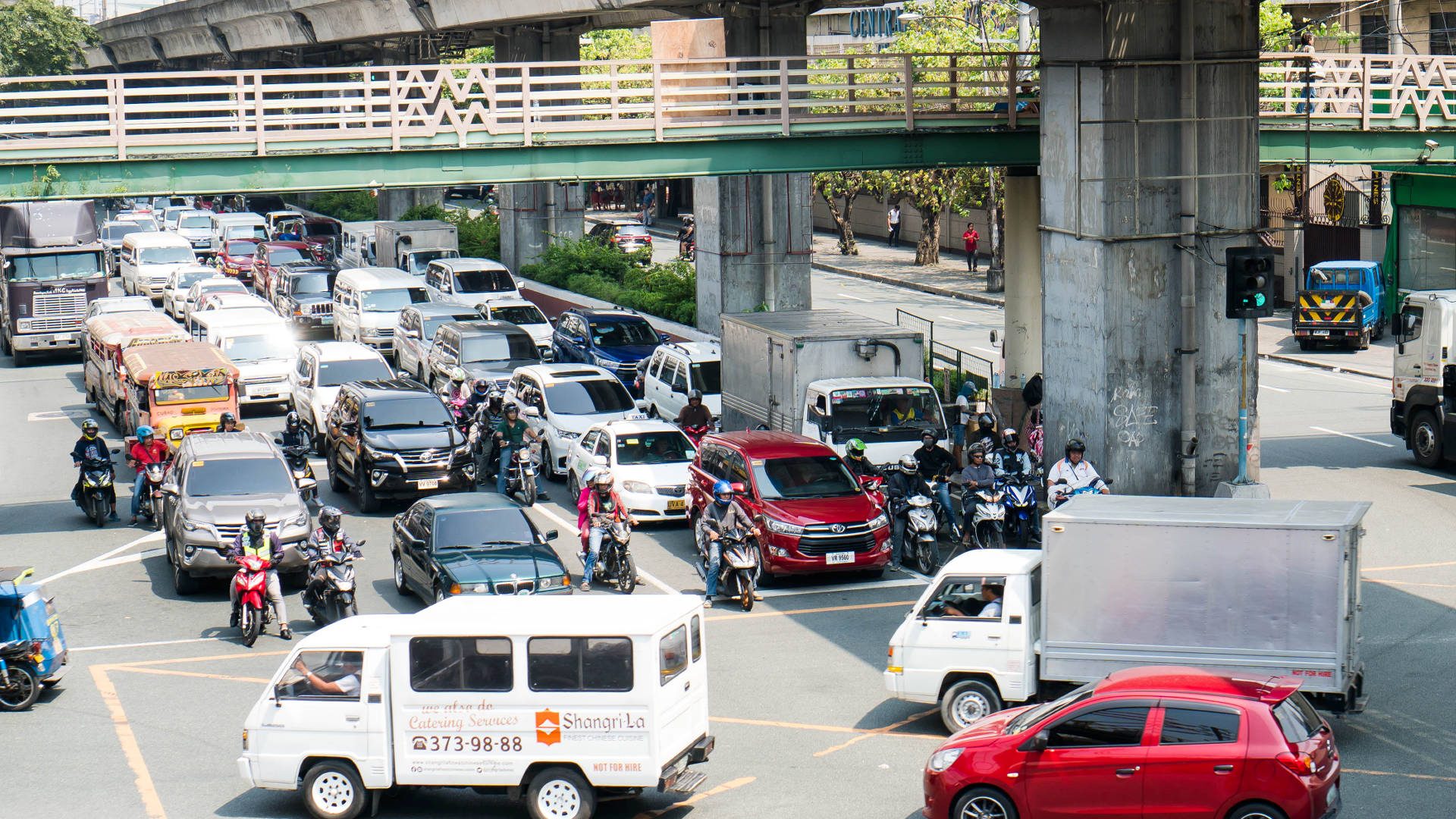
MANILA, Philippines – The vice-chairperson of the House committee on Metro Manila development has called for the suspension and review of the implementation of the no-contact apprehension policy (NCAP) in the capital region.
Quezon City 4th District Representative Marvin Rillo made the call through House Resolution No. 237, urging the House committees on local government, Metro Manila development, and transportation to probe the implementation of the NCAP amid complaints and concerns about the policy.
In his resolution filed on Monday, August 15, Rillo urged the Metropolitan Manila Development Authority (MMDA), Land Transportation Office (LTO), and concerned local government units “to suspend the implementation and enforcement of the NCAP pending the development of a uniform guideline for the implementation of the NCAP.”
He also urged that the three House committees be directed to hold an inquiry into the issues raised against the controversial policy and to summon the MMDA, LTO, and LGU officials directly involved in its implementation.
“There is a need to identify the issues and deficiencies behind the MMDA and LGU no-contact traffic apprehension policies to protect [the] motorists and the commuting public and prevent them from being subjected to excessive fines and penalties and be wrongfully burdened, not of the cost of violating traffic laws, rules and regulations, but of the cost of NCAP technologies of the MMDA and LGUs,” Rillo said in his resolution.
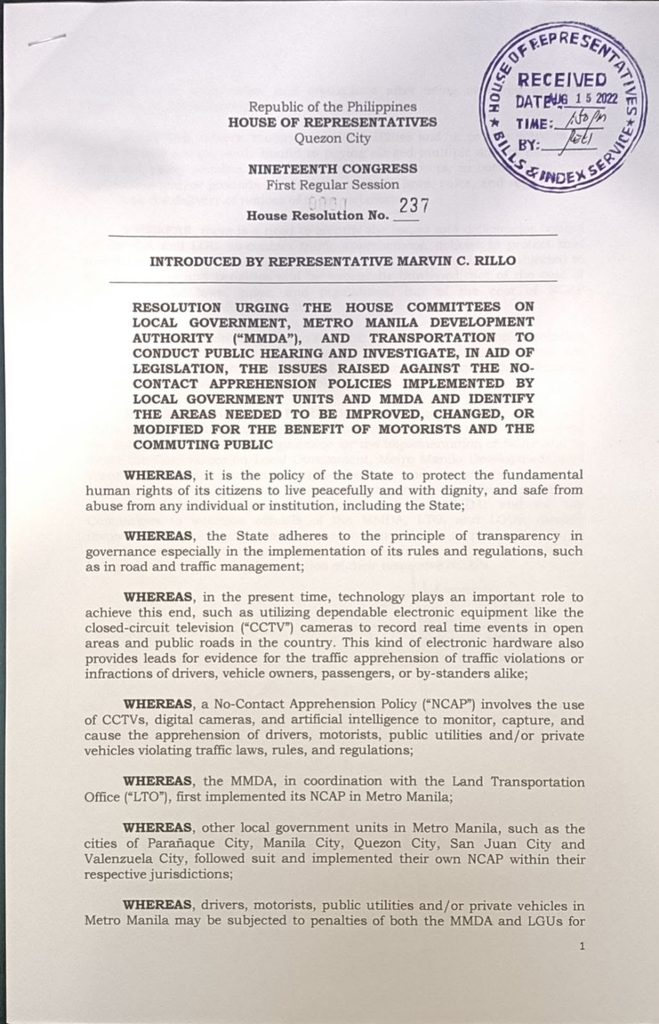

Rillo said in a statement that the House probe is meant to shield the rights and welfare of motorists against potential abuses in the implementation of the NCAP.
“Our sense is, in their haste to deploy the NCAP to build revenue from traffic fines, cities are haphazardly rolling out the technology at the expense of motorists,” he said.
“The House inquiry will identify and resolve all the issues surrounding the NCAP,” Rillo added.
The MMDA, in coordination with the LTO, first implemented the traffic policy in Metro Manila. The cities of Manila, Muntinlupa, Parañaque, Quezon, and Valenzuela later implemented their own NCAP, while San Juan City earlier announced that it would follow suit in August.
Transportation groups’ petition
Rillo filed the resolution on the same day that four transportation groups filed a petition before the Supreme Court, seeking to declare the NCAP as unconstitutional.
Kilusan sa Pagbabago ng Industriya ng Transportasyon Incorporated, Pangkalahatang Sagguniang Manila and Suburbs Drivers Association Nationwide (Pasang-Masda), Alliance of Transport Operators and Drivers Association of the Philippines (ALTODAP), and Alliance of Concerned Transport Organization (ACTO) had also asked the Court to issue a temporary restraining order on the implementation of the NCAP pending its decision.
On Tuesday, SC spokesman Brian Keith Hosaka confirmed that the magistrates tackled the transport group’s petition during their regular en banc session. He said the Court gave the respondents a chance to comment on the petition.
“The Court has required the respondents to file their respective comments to the said petition and application for TRO within a non-extendible period of 10 days from receipt of the written notice from the Court,” Hosaka said.
The respondents are the MMDA, LTO, the City of Manila, Quezon City, Valenzuela City, Paranaque City, and Muntinlupa City.
The petitioners argued that the MMDA has no legal authority to craft a resolution adopting the implementation of NCAP, and that at the time the resolution was passed, there was no valid law or ordinance adopted by local city councils authorizing the MMDA to expand traffic rules and regulations.
They also claimed that the local ordinances facilitating the implementation NCAP are not valid as there are no existing laws that allows it. They said Republic Act 4136 or the Land Transportation and Traffic Code provides for only face-to-face apprehension of traffic violators, and that erring drivers – not the registered vehicle owners – are liable for traffic violations.
The transport groups also lamented the NCAP rule that vehicle registration cannot b renewed unless fines for traffic violations are settled, and for the inclusion of innocent third persons as liable for traffic violations.
Mayors respond
The concerned mayors issued a joint statement on Thursday, August 18, saying they “have joined together on a common stance to continue the implementation of NCAP within our respective territorial jurisdictions and vow to continuously improve infrastructure and road conditions foreseeing the need for a safer environment for our constituents.”
San Juan Mayor Francis Zamora said that the NCAP is not yet in place in his city as the necessary equipment are still being installed.
“We are open to listening to the LTO and the different sectors and we are open as well to amending any existing provisions for a better and smoother implementation of the NCAP in our city,” Zamora said.
– Rappler.com
Add a comment
How does this make you feel?

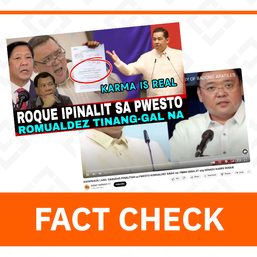
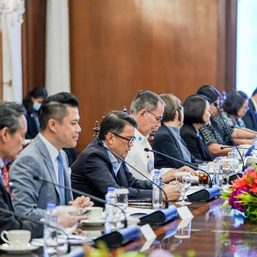
![[OPINION] The First Mode conundrum](https://www.rappler.com/tachyon/2024/03/tl-first-mode-conundrum-03232024.jpg?resize=257%2C257&crop=283px%2C0px%2C720px%2C720px)
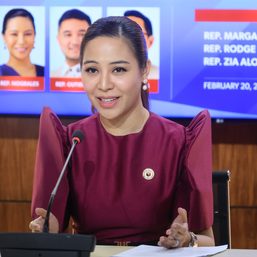
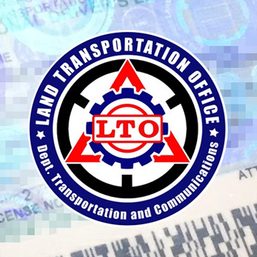
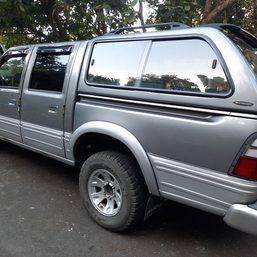
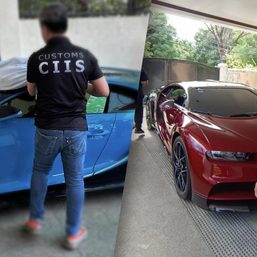
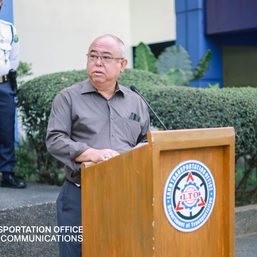
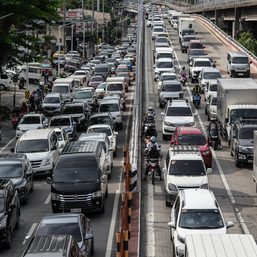
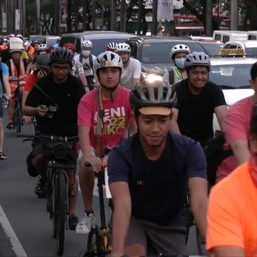
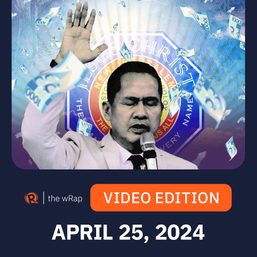
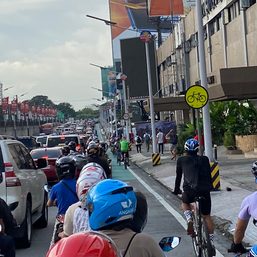
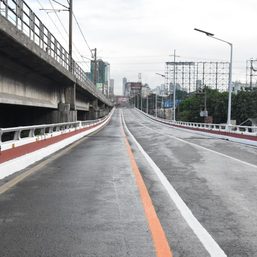
![[EDITORIAL] Kamaynilaan para sa tao, hindi para sa mga sasakyan](https://www.rappler.com/tachyon/2024/04/animated-traffic-april-2024-carousel.jpg?resize=257%2C257&crop=410px%2C0px%2C720px%2C720px)
There are no comments yet. Add your comment to start the conversation.